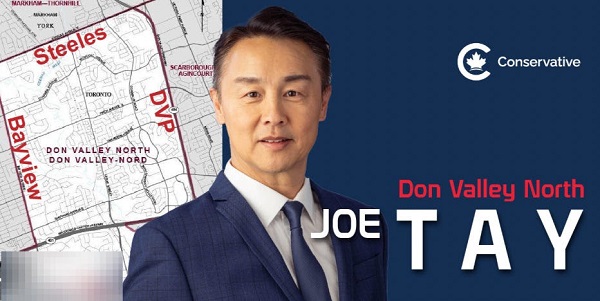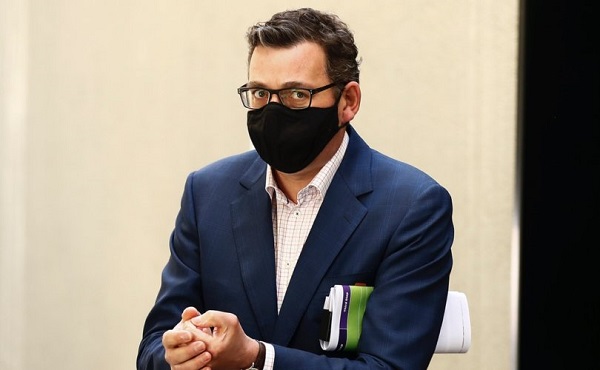National
Trudeau government introduces bill that could strip pro-life pregnancy centers of charity status

From LifeSiteNews
Trudeau’s Department of Finance announced new legislation to amend the Income Tax Act and Income Tax Regulations to protect ‘reproductive freedom,’ a euphemism for abortion, by preventing the so-called ‘abuse of charitable status.’
The Liberal government of Prime Minister Justin Trudeau has brought forth legislation that could see pro-life pregnancy centers stripped of their charitable tax status.
In a press release Tuesday, Canada’s Department of Finance announced new legislation to amend the Income Tax Act and Income Tax Regulations to protect “reproductive freedom by preventing abuse of charitable status.” The euphemistic term “reproductive freedom” refers to the so-called freedom to have an abortion or engage in other anti-life practices. The bill was tabled by Trudeau’s Minister for Women and Gender Equality and Youth Marci Ien.
The finance department said the new law will “require registered charities that provide services, advice, or information in respect of the prevention, preservation, or termination of pregnancy” to disclose where they “do not provide specific services, including abortions or birth control.”
“Under this legislation, a registered charity that provides reproductive health services would need to disclose if, at a minimum, it does not provide the contact information for an abortion services provider and a birth control service provider,” says the finance department.
In effect, the bill would mandate that registered charities disclose whether or not they offer abortion or birth control services or if they provide contact information to those who do, with the department of finance clarifying that “[w]here a charity fails to meet the requirements specified in the legislation, the Minister of National Revenue would be permitted to revoke its registration.”
Pro-life group rips proposed law
“Stripping pro-life charities of their charitable status jeopardizes the very existence of these crucial organizations,” Jeff Gunnarson, National President of Campaign Life Coalition, told LifeSiteNews.
“They would be forced to close, leaving the women and babies they serve without the support they need.”
CLC noted that the vast majority of pro-life pregnancy centres already disclose that they “don’t commit or refer for abortions.”
“This proposed legislation puts them under unfair scrutiny and perpetuates misinformation from abortion-activist organizations, which falsely claim that they aren’t transparent,” said CLC.
Gunnarson said to LifeSiteNews that with the proposed legislation, “the Liberal party is once again reaffirming that it is not the party of ‘choice’ but the party of abortion as the only choice.”
“We call on opposition parties to unite to oppose this legislation. It must not pass. Lives depend on it.”
CLC’s Director of Communications Pete Baklinski also chimed in about the planned changes, saying the Trudeau government “wants to take down Canada’s pro-life pregnancy resource centers.”
“When the Liberals introduce this legislation, opposition parties must unite and vote non-confidence and trigger an election,” he observed on X.
Justin Trudeau wants to take down Canada's pro-life pregnancy resource centres.
When the Liberals introduce this legislation, opposition parties must unite and vote non-confidence and trigger an election.
The Liberal government needs to fall over this heinous legislation.… https://t.co/ZkRqXh9EzD
— Pro-life Canadian Man (@PeteBaklinski) October 29, 2024
“The Liberal government needs to fall over this heinous legislation.”
CLC also called on the Conservative Party under its leader Pierre Poilievre to “fulfill his promise to, as he said, ‘stand up against attempts by the government to attack organizations that help pregnant women.’”
“This is a crucial promise for pro-life pregnancy care centres that do such great work for mothers and children and which are now under attack by Mr. Trudeau for their life-affirming work,” noted CLC.
According to CLC, abortion has killed over four million preborn babies in Canada since its legalization in 1969. That is roughly equivalent to the population of Alberta.
2025 Federal Election
In Defeat, Joe Tay’s Campaign Becomes a Flashpoint for Suspected Voter Intimidation in Canada

 Sam Cooper
Sam Cooper
Canadian police initiated review of campaign complaint.
In one of the most closely scrutinized races of Canada’s 2025 federal election, Joseph Tay—the Conservative candidate identified by federal authorities as the target of aggressive Chinese election interference operations—was defeated Monday night in Don Valley North by Liberal Maggie Chi, following a campaign marred by threats, suspected intimidation, and digital suppression efforts.
The Bureau has learned that Canadian police last week reviewed complaints alleging that members of Tay’s campaign team were shadowed in an intimidating manner while canvassing in the final days of the race. The status of the incident review remains unclear.
With over 20,000 votes—a 43 percent share compared to 53 percent for Liberal Maggie Chi—Tay nearly doubled the Conservative Party’s 2021 vote total of 12,098 in this riding.
Last Monday, federal intelligence officials disclosed that Tay was the subject of a highly coordinated transnational repression operation tied to the People’s Republic of China. The campaign aimed to discredit his candidacy and suppress Chinese Canadian voters’ access to his messaging through cyber and information operations.
That same day, federal police advised Tay to suspend door-to-door canvassing, according to two sources with direct knowledge, citing safety concerns. Several days later, Tay’s campaign reported to police that a man had been trailing a door-knocking team in a threatening manner in a Don Valley North neighbourhood.
Following The Bureau’s reporting, the New York Times wrote on Sunday: “Fearing for his safety, Mr. Tay… has waged perhaps the quietest campaign of any candidate competing in the election. The attacks on Mr. Tay have sought to influence the outcome of the race in Don Valley North, a district with a large Chinese diaspora in Toronto, in what is the most vote-rich region in Canada.”
In a twist, in neighbouring Markham–Unionville, Peter Yuen—the Liberal candidate who replaced former MP Paul Chiang, who had made controversial remarks about Tay being turned over to Chinese officials—was defeated by Conservative candidate Michael Ma. According to Elections Canada’s results, Ma secured the riding by about 2,000 votes.
Tay and his campaign team had conducted extensive groundwork in Markham–Unionville earlier this year, where he publicly announced his intention to seek the Conservative nomination in January. However, the party ultimately assigned him on March 24 to Don Valley North—a riding that, according to the 2024 report of the National Security and Intelligence Committee of Parliamentarians (NSICOP), was the site of serious foreign interference by the People’s Republic of China during the 2019 election.
At 2 a.m., Tay posted a message to X thanking supporters: “By God’s grace, though we did not win tonight, we have already won something far greater—the courage to stand, to speak, and to dream together.”
Signaling he may run again, Tay added: “Our journey does not end here. I remain committed to upholding Canadian values—freedom, respect, and community—and will continue to serve and help build a wholesome, principled community in every way I can.”
Last Monday, SITE—Canada’s election-threat monitoring task force—confirmed that Tay was the target of a coordinated online disinformation campaign, warning in briefing materials that “this was not about a single post” but a “deliberate, persistent campaign” designed to distort visibility and suppress legitimate discourse among Chinese-speaking voters.
The tactics bore striking resemblance to interference allegations uncovered by The Bureau during the 2021 federal election, when Conservative MP Bob Saroya was unseated in Markham–Unionville amid allegations that operatives linked to the Chinese government had shadowed Saroya, surveilled his campaign, and sought to intimidate voters. Senior Conservative officials said CSIS provided briefings at the time warning of what they described as “coordinated and alarming” surveillance efforts.
In Tay’s case, official sources confirmed that Chinese-language platforms circulated disinformation framing him as a fugitive, invoking his Hong Kong National Security Law bounty—set at $180,000 CAD—to portray his candidacy as a threat to Canada.
Earlier this month, The Bureau reported that former Liberal MP Paul Chiang—who defeated Conservative incumbent Bob Saroya in 2021—withdrew as a candidate after the RCMP opened a review into remarks he made suggesting that Joe Tay’s election could spark “great controversy” for Canada because of Hong Kong’s national security charges, and that Tay could be handed over to the Chinese consulate to collect a bounty. Chiang later apologized, describing the comments as a poorly judged joke. However, prominent diaspora organizations and human rights groups condemned the remarks as a disturbing example of rhetoric echoing transnational repression.
According to SITE assessments reviewed by The Bureau, coordinated suppression efforts were particularly acute in Don Valley North, where Tay’s online visibility was sharply curtailed across Chinese-language social media ecosystems.
The status of the RCMP’s review into Chiang’s remarks—and a separate complaint to Toronto police alleging that Tay’s campaign staff may have been intimidated while canvassing—remains unclear.
With Mark Carney’s Liberals securing a narrow minority and Canada’s political landscape growing increasingly polarized—against the backdrop of an intensifying cold war between Washington and Beijing—some pundits predict voters could be heading back to the polls sooner than expected. Whether election threat reviewers will now dig deeper into China’s suspected interference in this and other ridings remains an open question.
2025 Federal Election
Poilievre loses seat but plans to stay on as Conservative leader

From LifeSiteNews
Pierre Poilievre, despite losing his seat, plans to stay on as Conservative Party leader, expressing optimism about the party’s future role after gaining significant seats in the election.
Conservative Party leader Pierre Poilievre has lost his seat in the House of Commons, but has indicated he plans to stay on as party leader.
Early this morning, polls confirmed that Poilievre lost his Ottawa-area Carleton seat to Liberal Member of Parliament (MP) Bruce Fanjoy after telling Canadians last night that he plans to stay on as leader of the Conservative Party.
“I thank you from the bottom of my heart to the millions of people who voted for the Conservative Party and put their hopes and dreams in our vision. It will be an honor to continue to fight for you and to be a champion,” Poilievre told supporters at the Rogers Centre in Ottawa after the April 28 election.
As LifeSiteNews reported, the Liberal Party, under the leadership of Mark Carney, has won a minority government, securing their fourth term in Canada.
Poilievre had held his Carleton seat for seven straight elections, representing the area since 2004.
Despite the Liberal victory, Poilievre remained hopeful for the Conservatives’ role in Canada’s future.
“To my fellow Conservatives, we have much to celebrate tonight,” he said. “We’ve gained well over 20 seats. We got the highest share of vote our party has received since 1988. We denied the NDP and Liberals enough seats to form a coalition government.”
“We did all of this in a very difficult environment,” Poilievre continued. “That said, we are cognizant of the fact that we didn’t quite get over the finish line yet. We know that change is needed, but change is hard to come by. It takes time. It takes work. And that’s why we have to learn the lessons of tonight so that we can have an even better result the next time the Canadians decide the future for the country.”
“Canadians have opted for a razor thin minority government, a virtual tie in the vote count,” he added.
Under Carney, the Liberals are expected to continue much of what they did under Trudeau, including the party’s zealous push in favor of euthanasia, radical gender ideology, internet regulation and so-called “climate change” policies. Indeed, Carney, like Trudeau, seems to have extensive ties to both China and the globalist World Economic Forum, connections which were brought up routinely by conservatives in the lead-up to the election but seemed to not have swayed a sufficient number of voters.
-

 2025 Federal Election2 days ago
2025 Federal Election2 days agoMark Carney: Our Number-One Alberta Separatist
-

 2025 Federal Election2 days ago
2025 Federal Election2 days agoCanada is squandering the greatest oil opportunity on Earth
-

 International1 day ago
International1 day agoU.S. Army names new long-range hypersonic weapon ‘Dark Eagle’
-

 Autism1 day ago
Autism1 day agoUK plans to test children with gender confusion for autism
-

 Alberta3 hours ago
Alberta3 hours agoPremier Danielle Smith responds to election of Liberal government
-

 COVID-191 day ago
COVID-191 day agoFormer Australian state premier accused of lying about justification for COVID lockdowns
-

 Business1 day ago
Business1 day agoNet Zero by 2050: There is no realistic path to affordable and reliable electricity
-

 Addictions1 day ago
Addictions1 day agoFour new studies show link between heavy cannabis use, serious health risks



